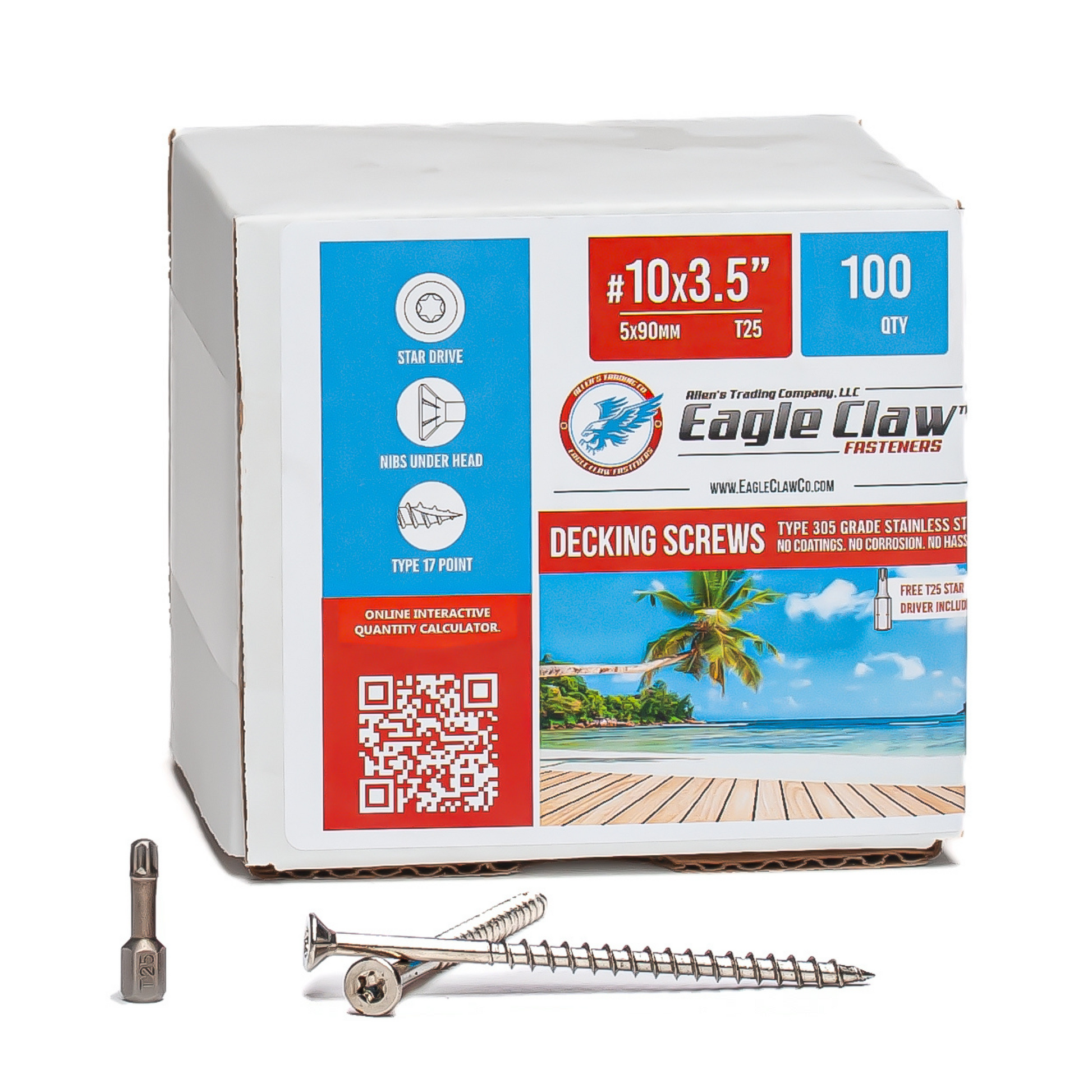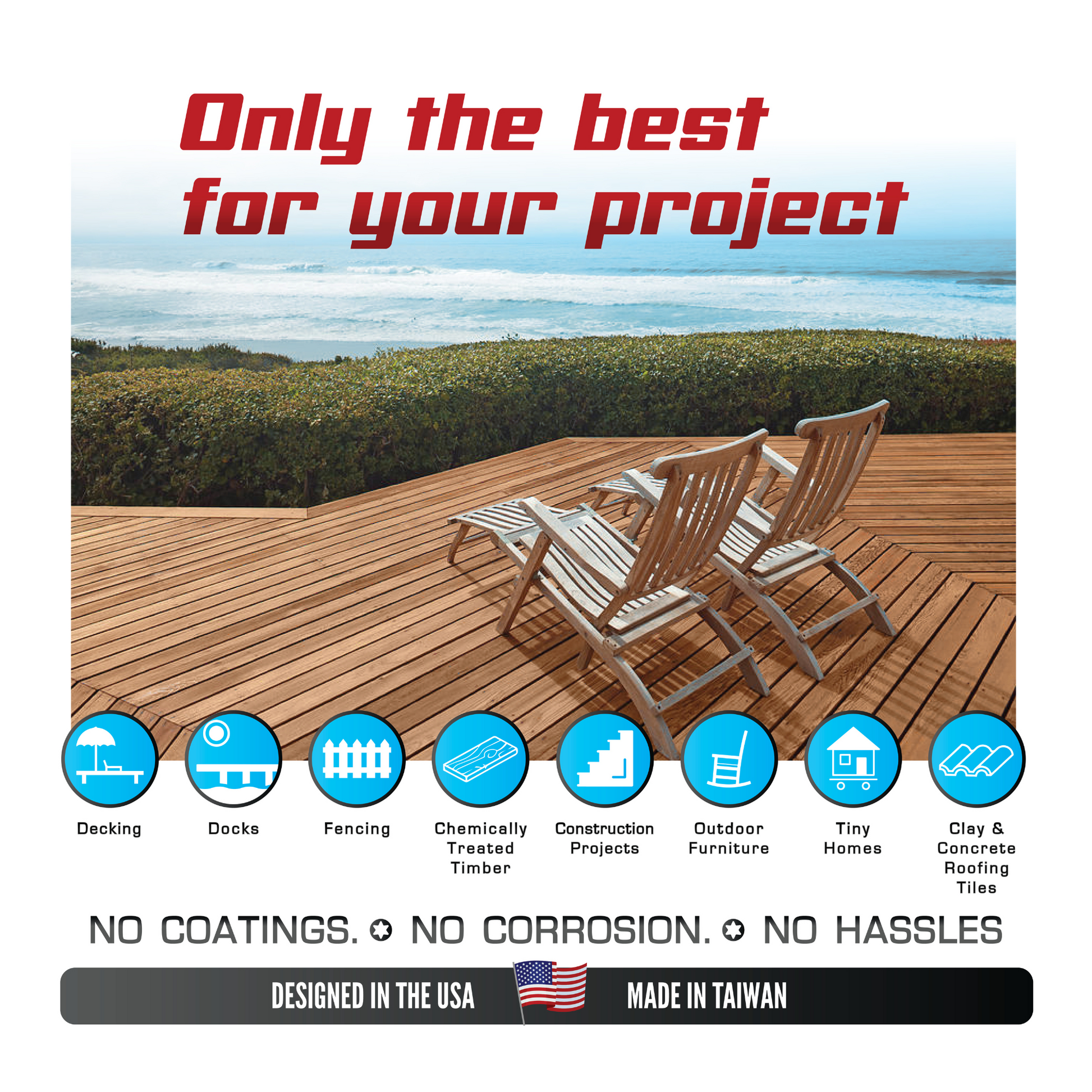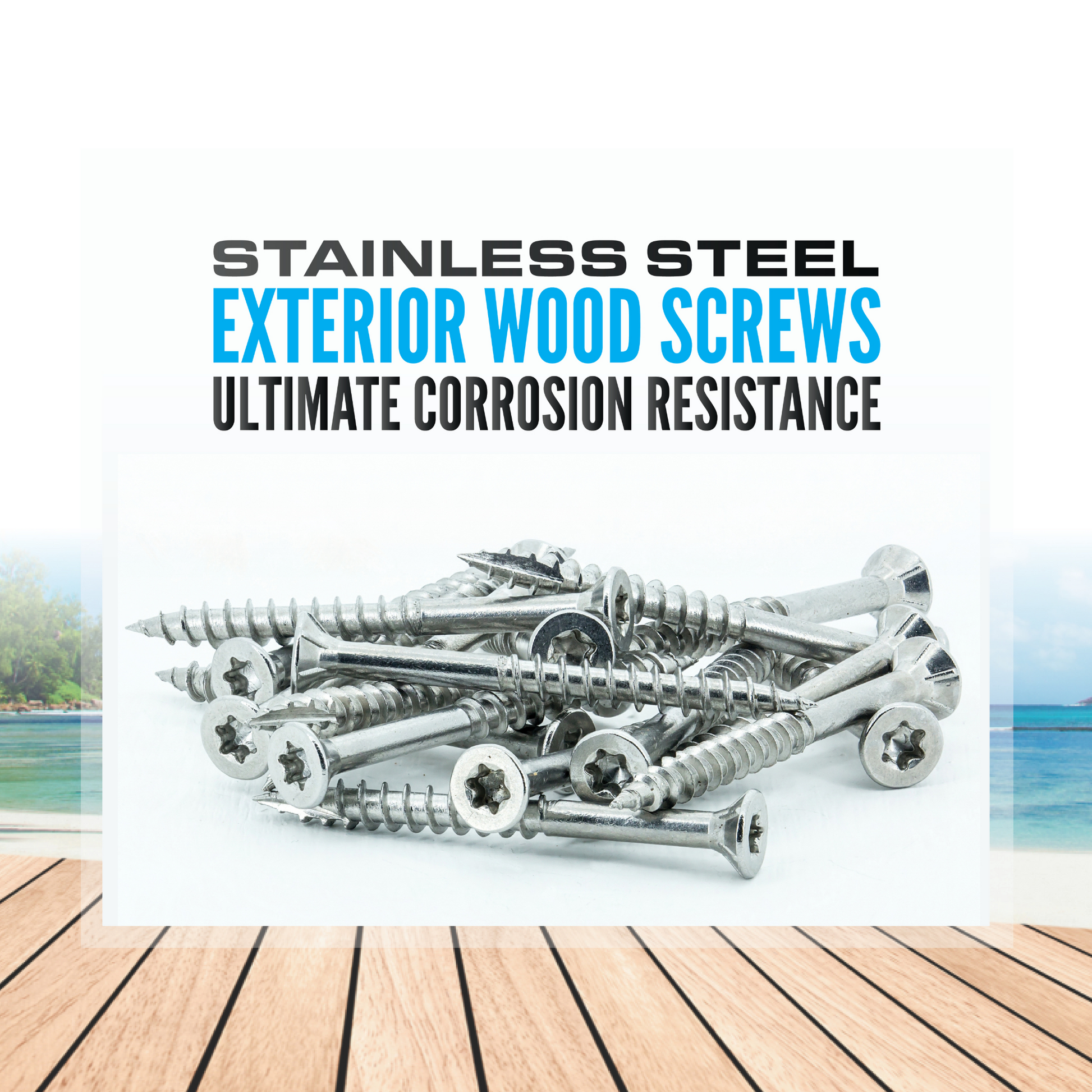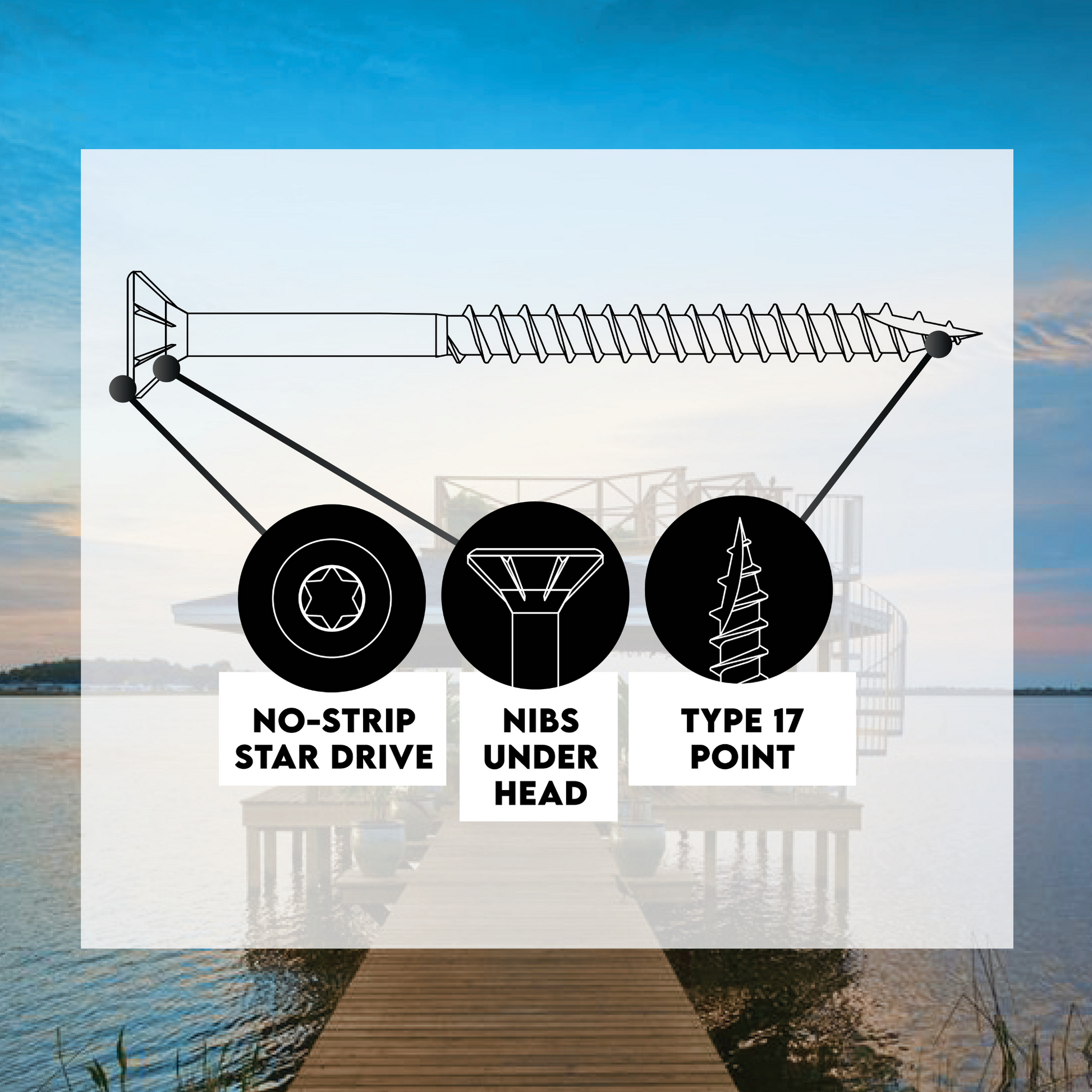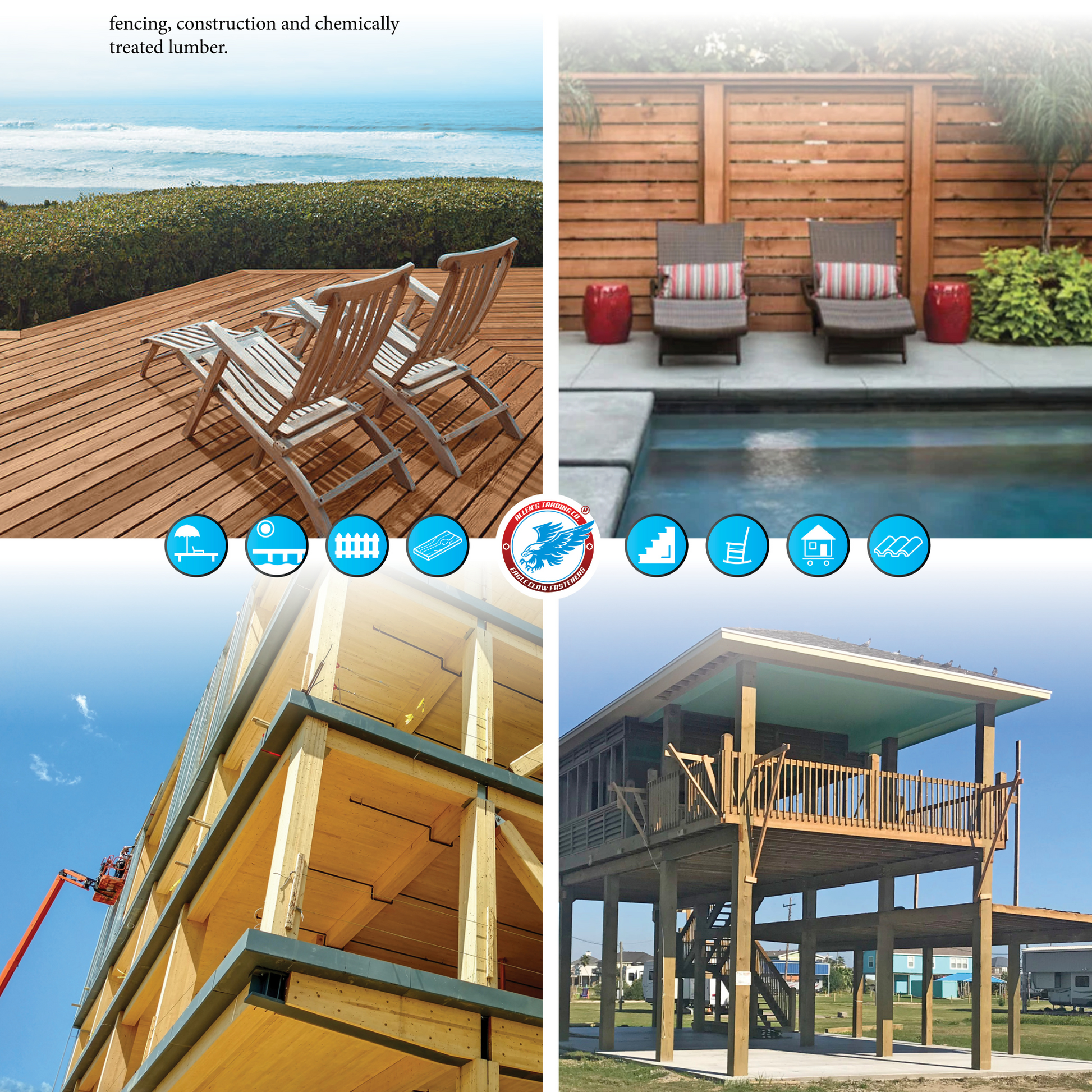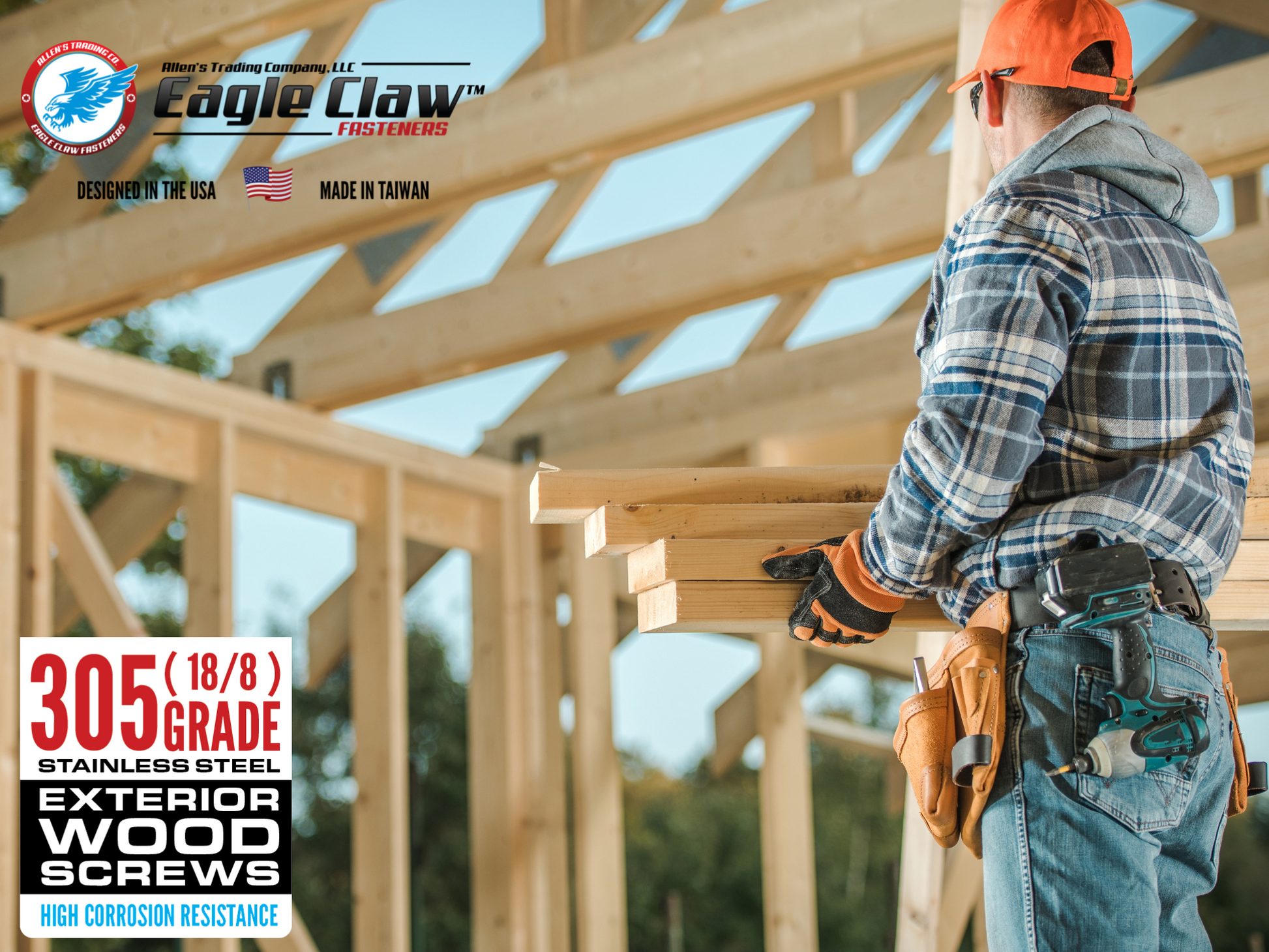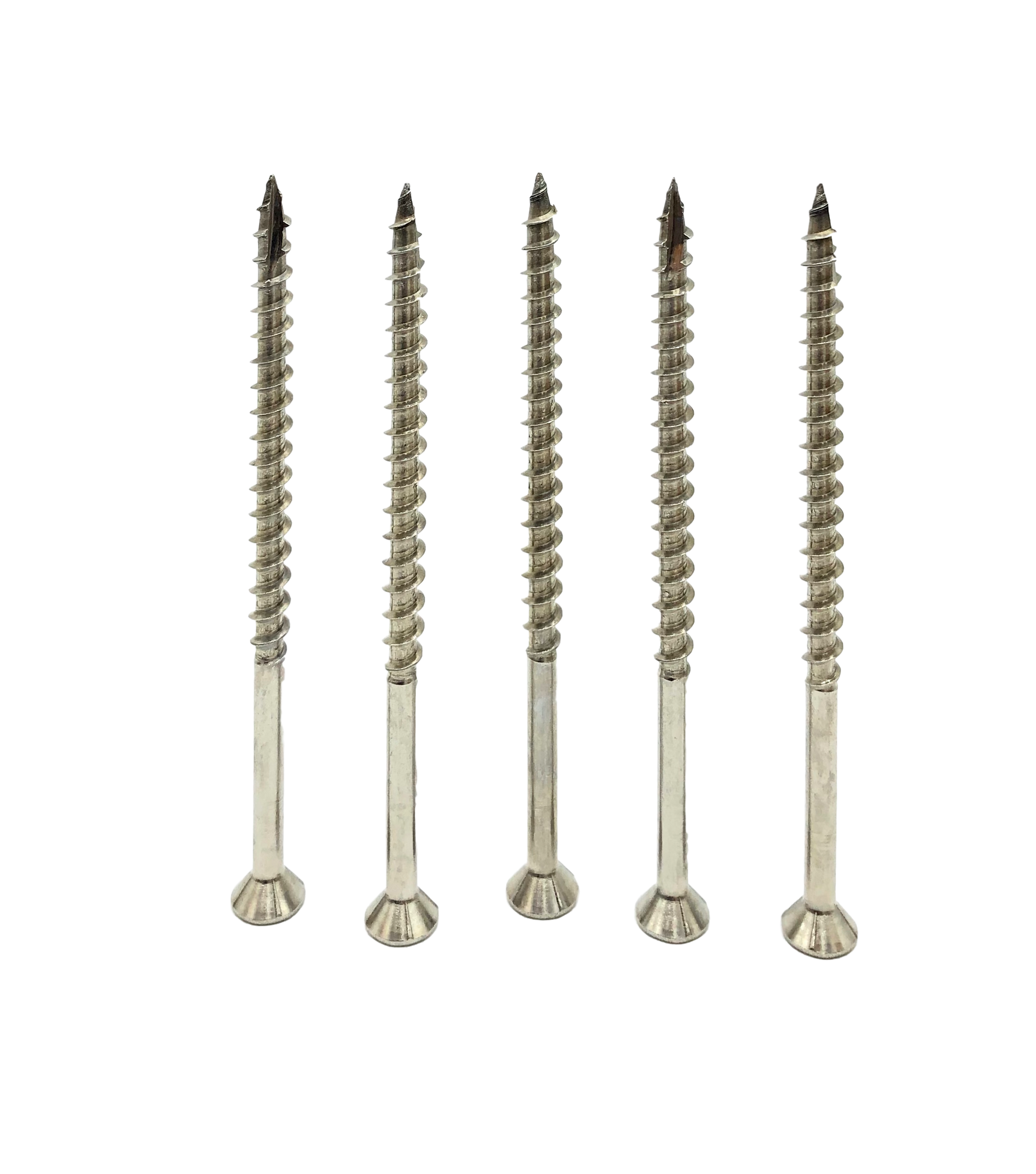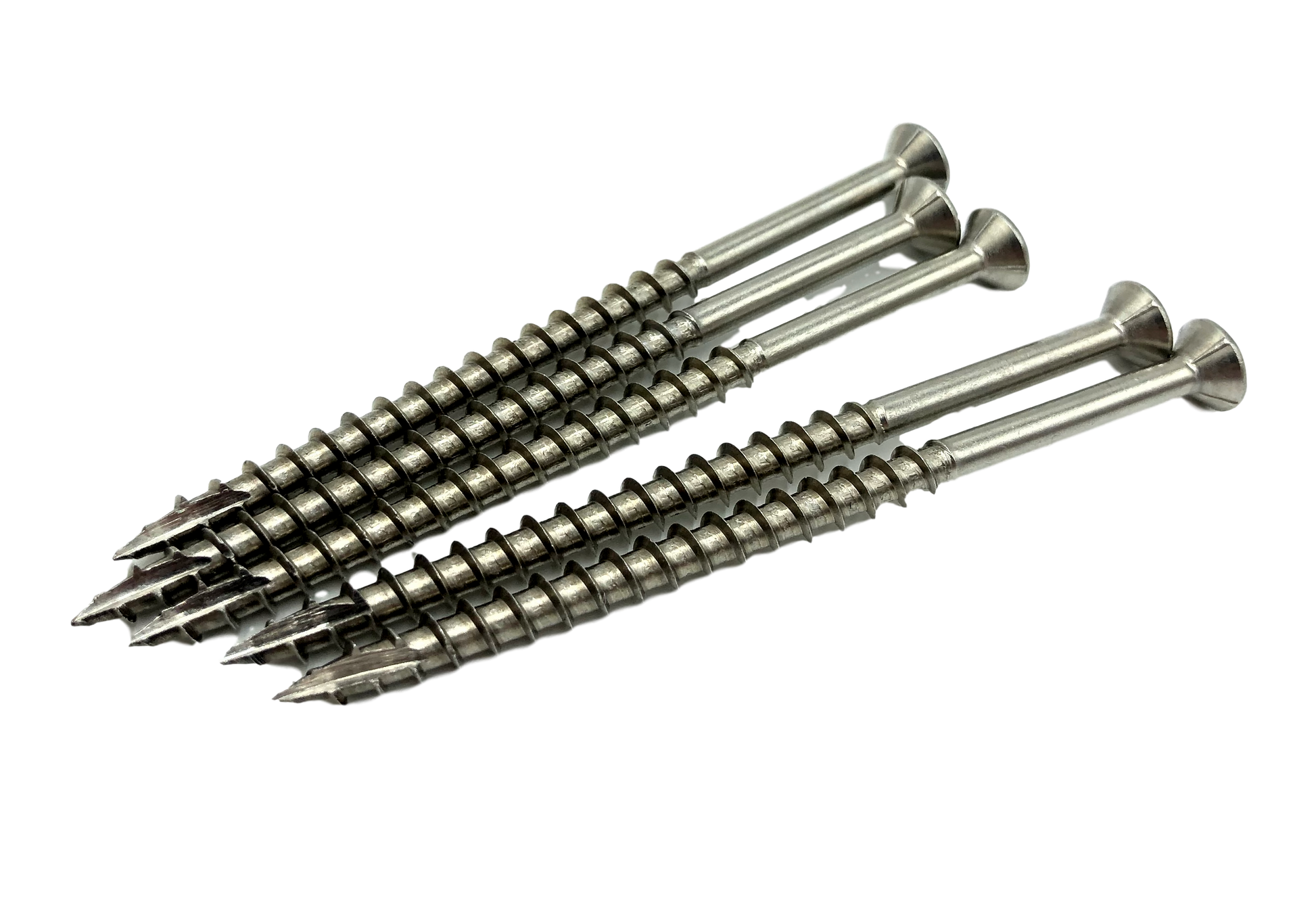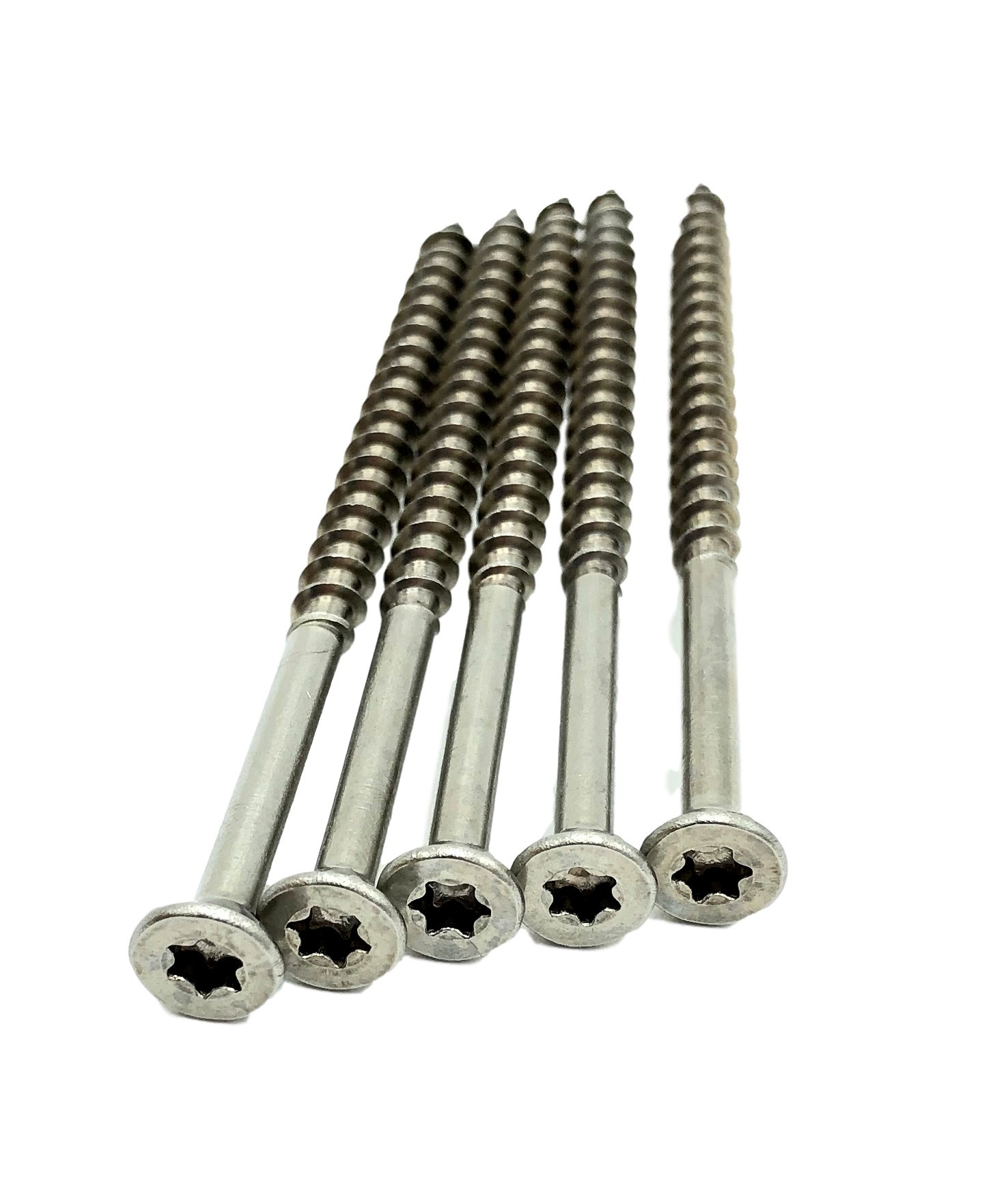#10 x 3½" 304 Grade Stainless Steel Wood Screws
#10 x 3½" 304 Grade Stainless Steel Wood Screws
Couldn't load pickup availability
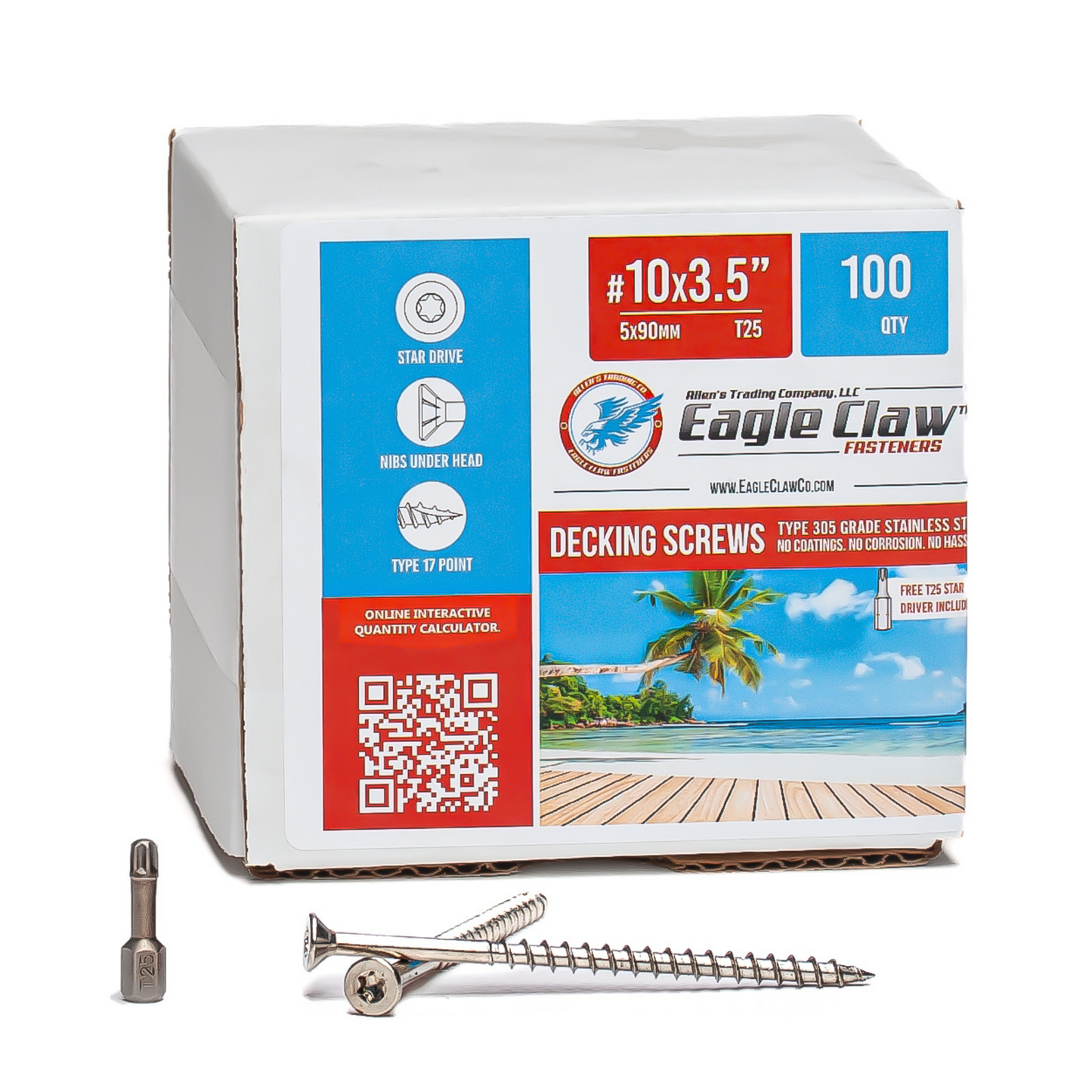
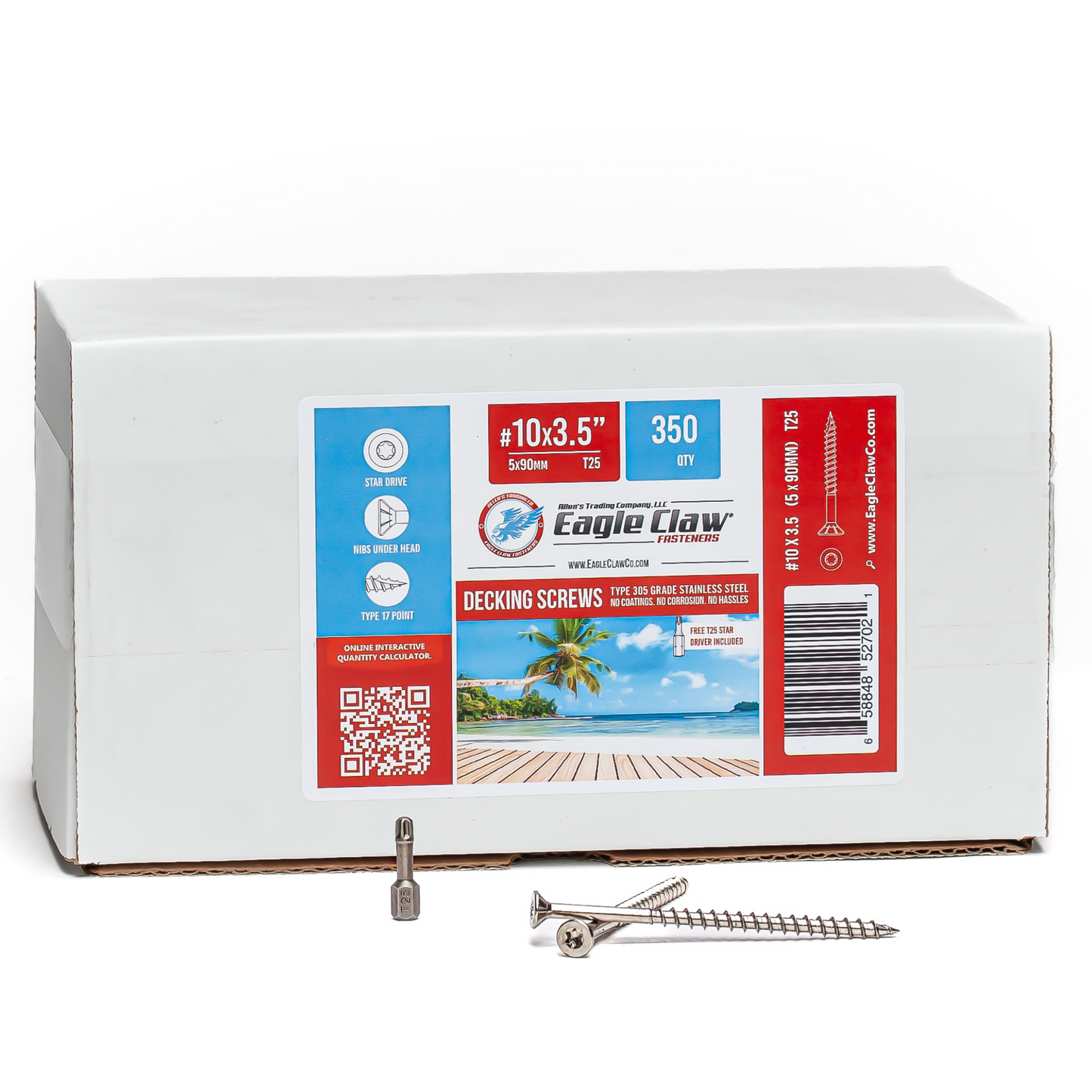
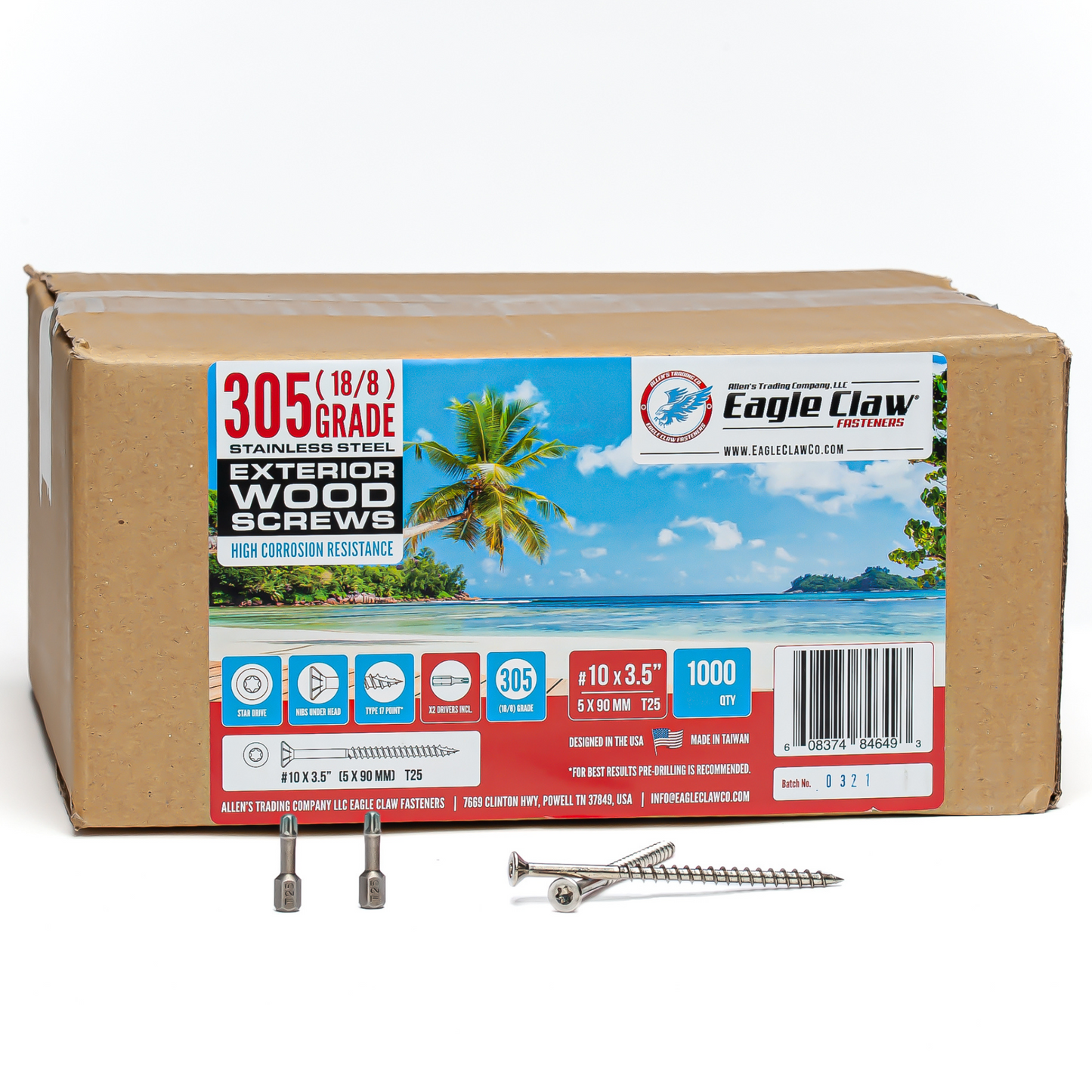
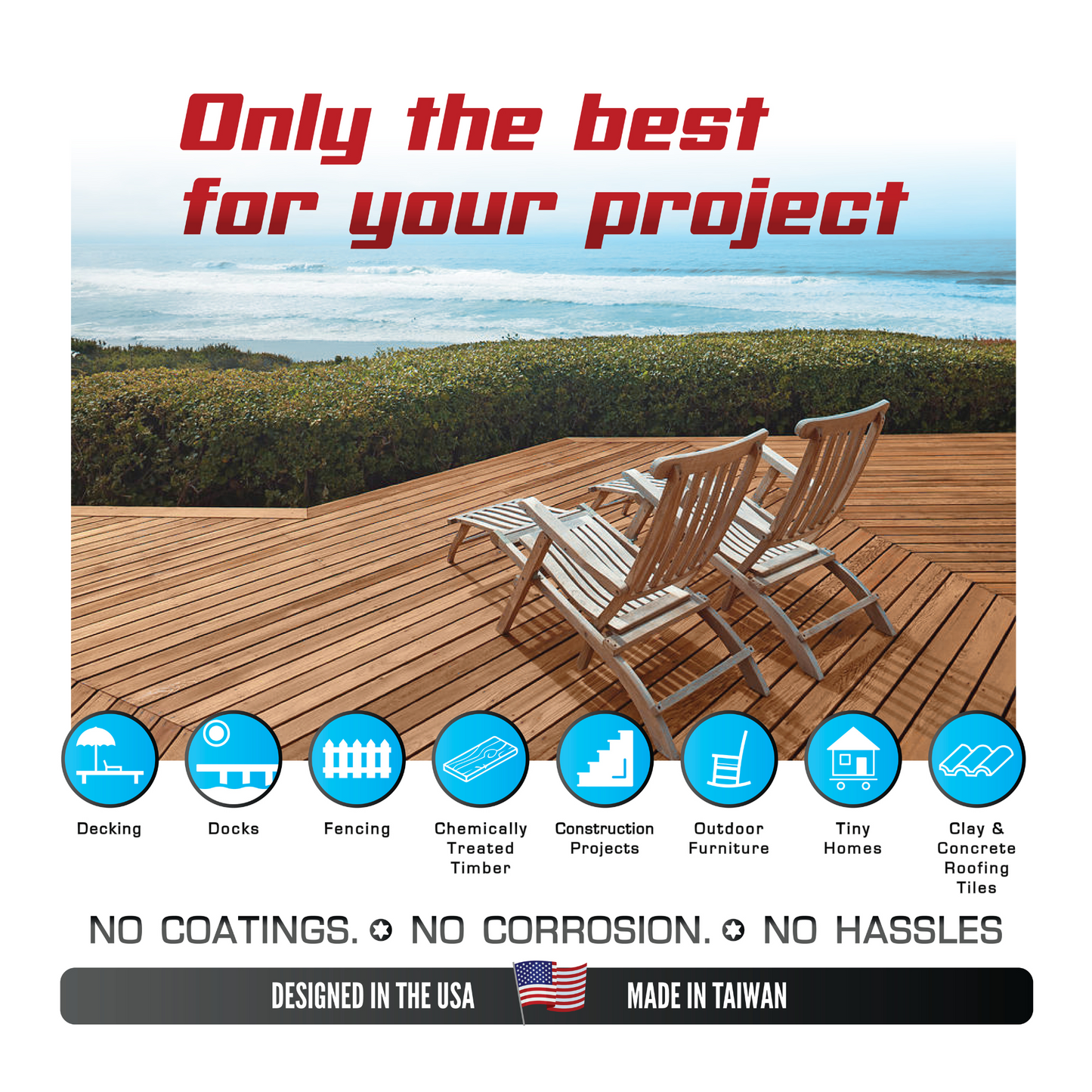
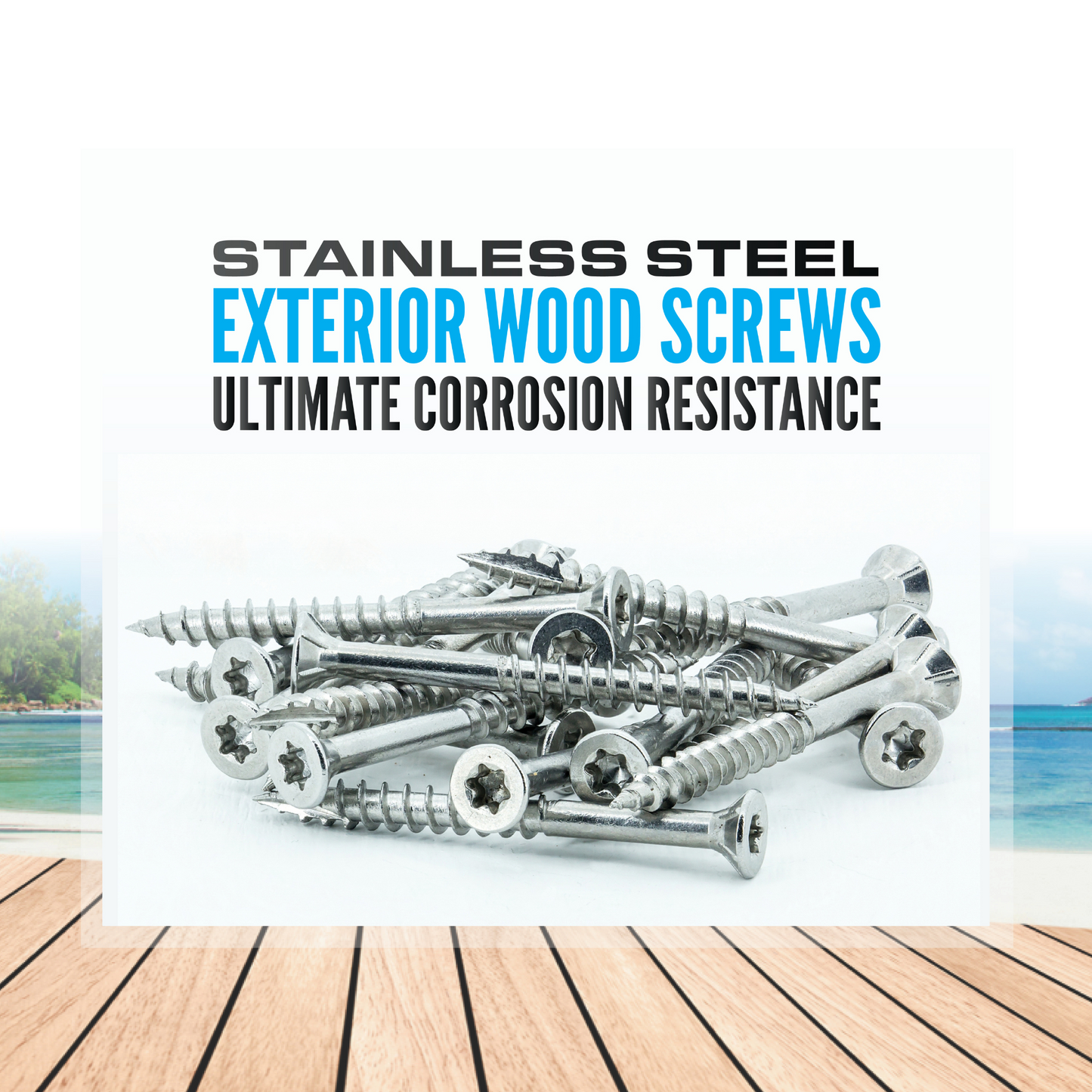
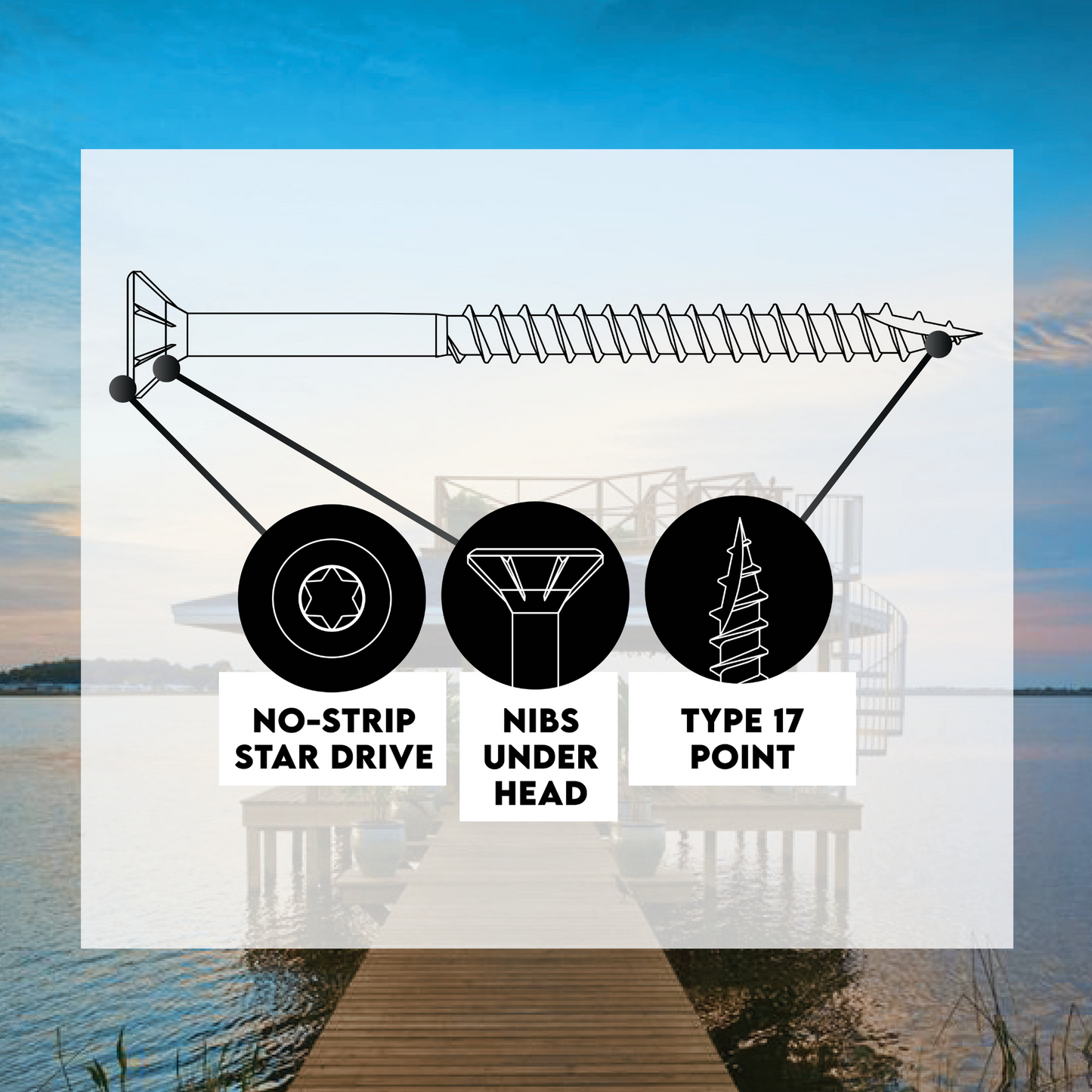
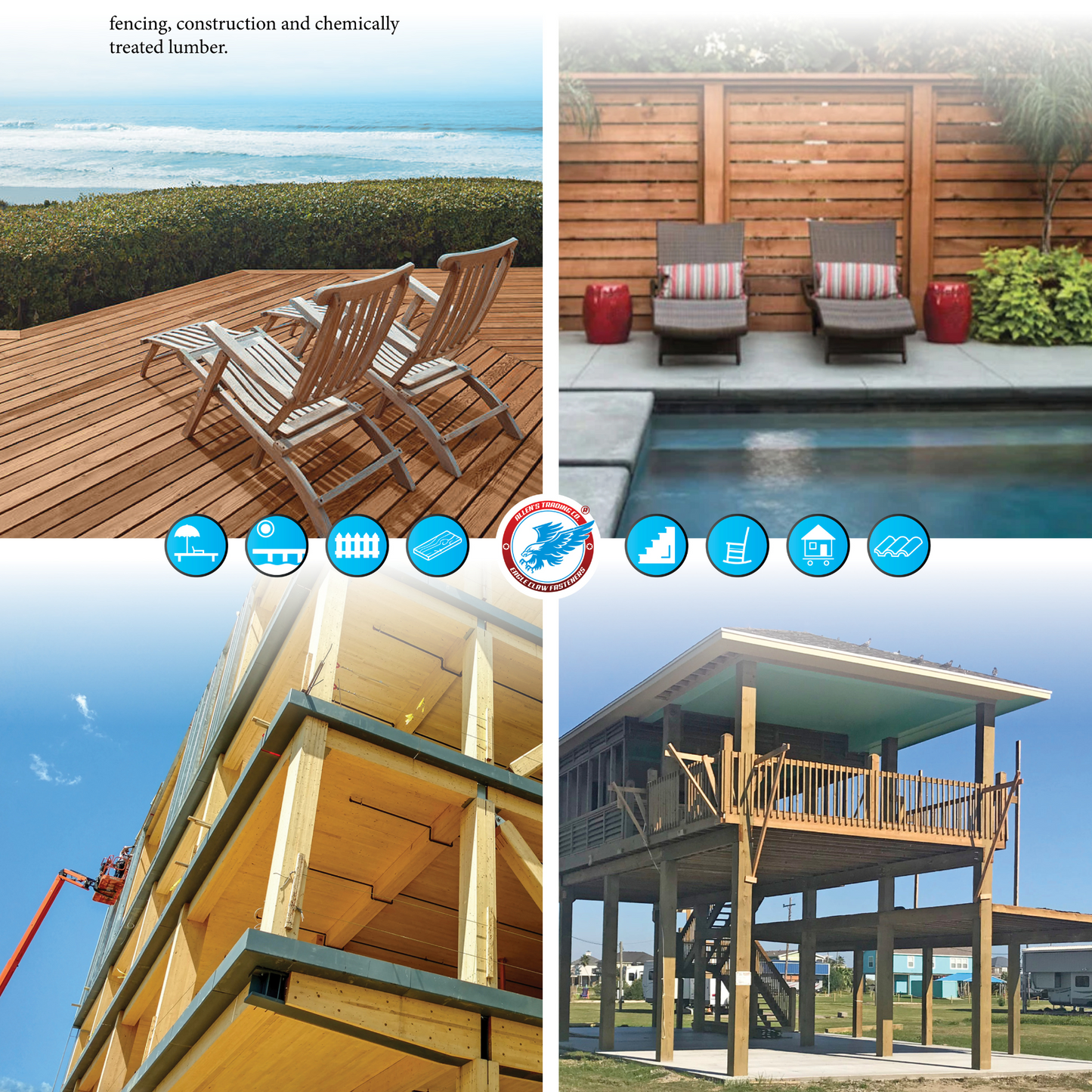
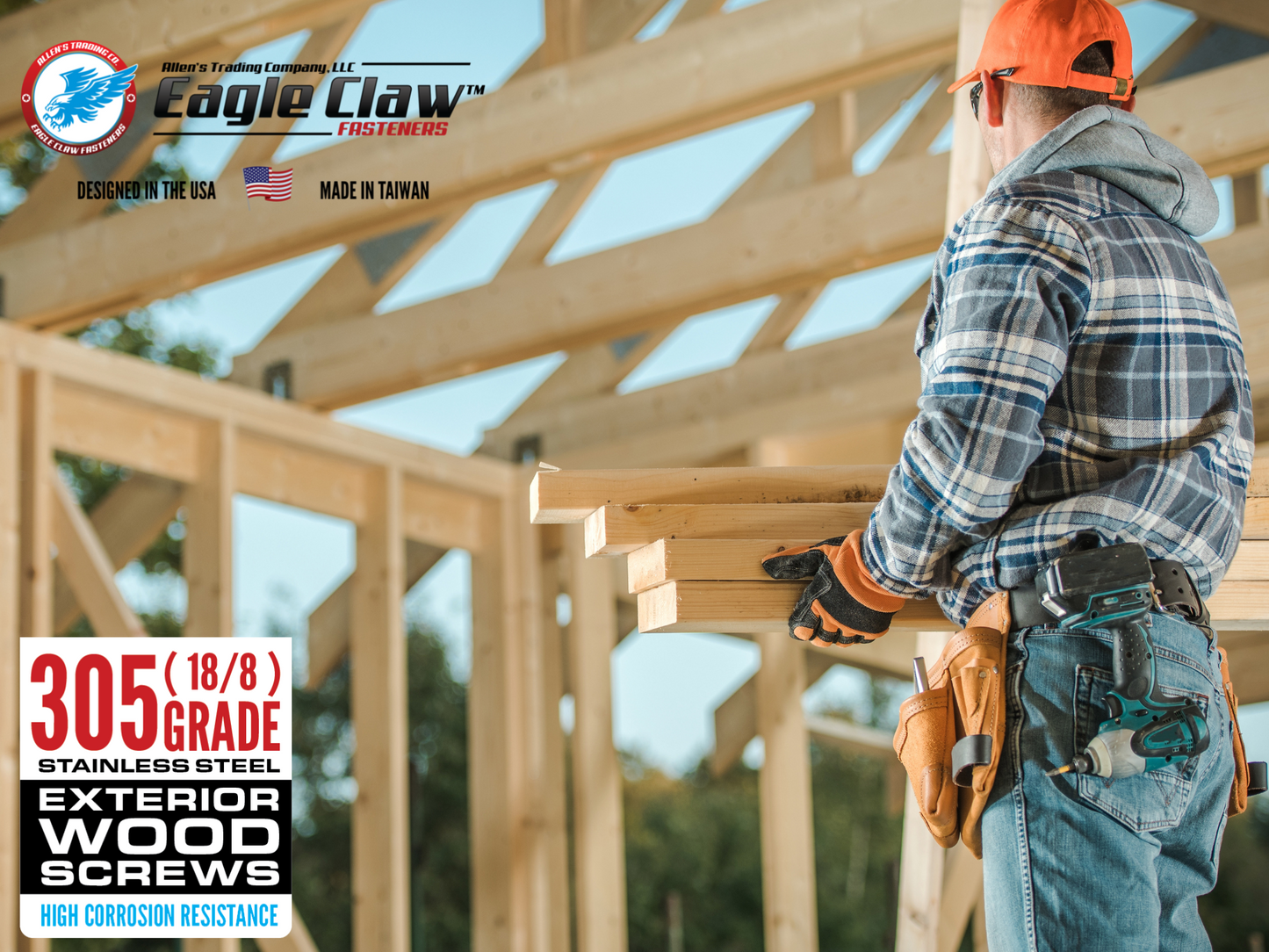
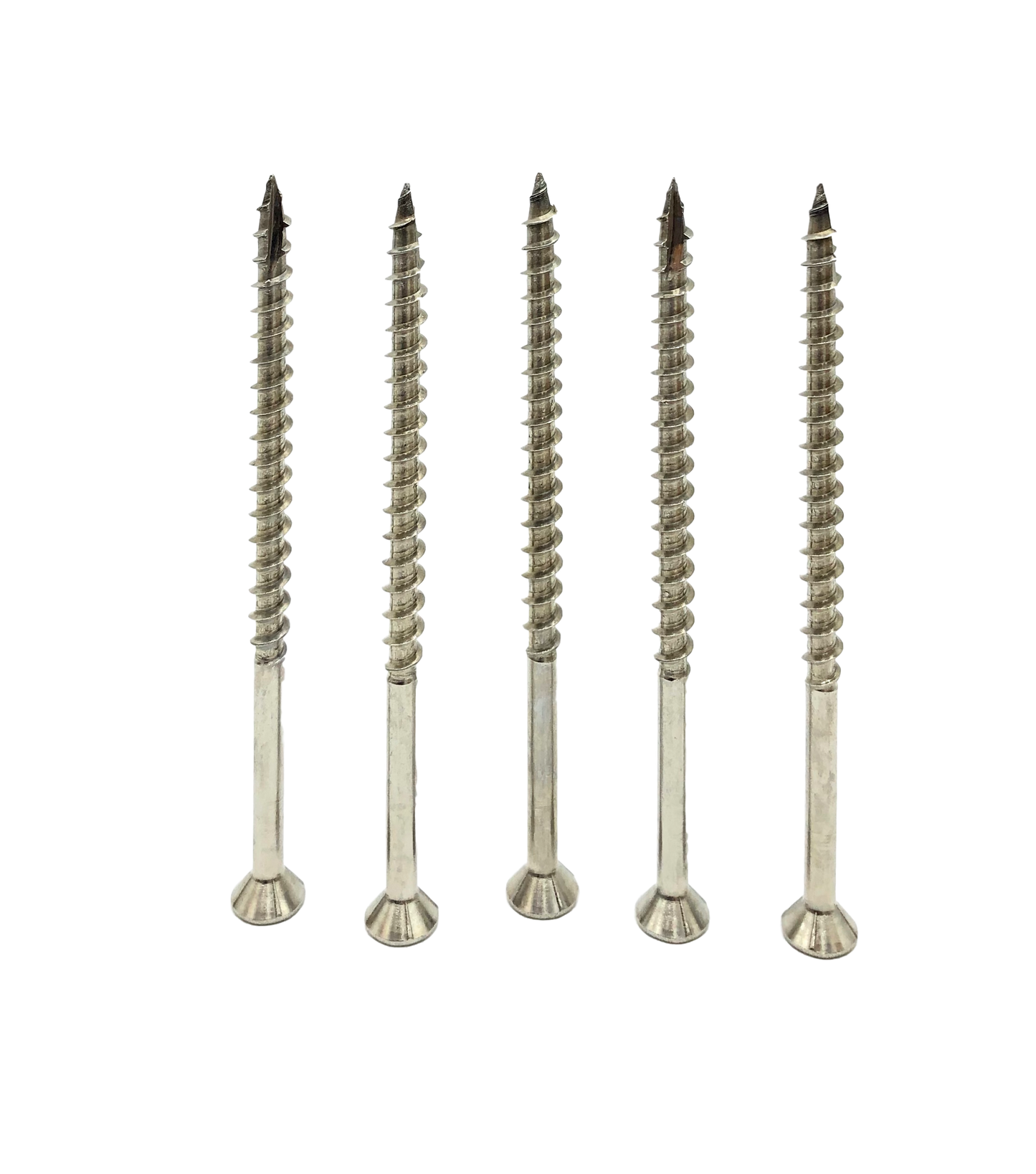
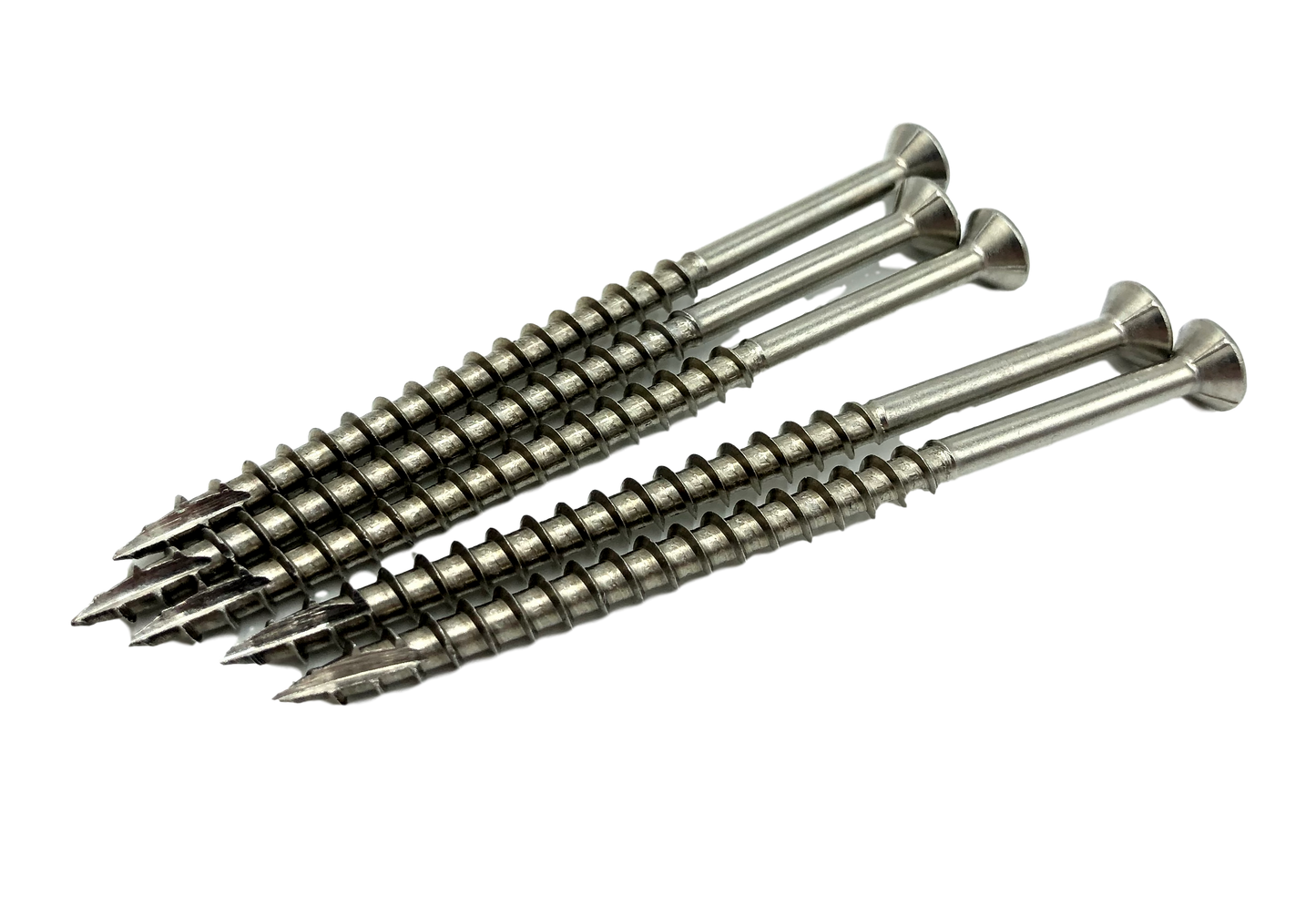
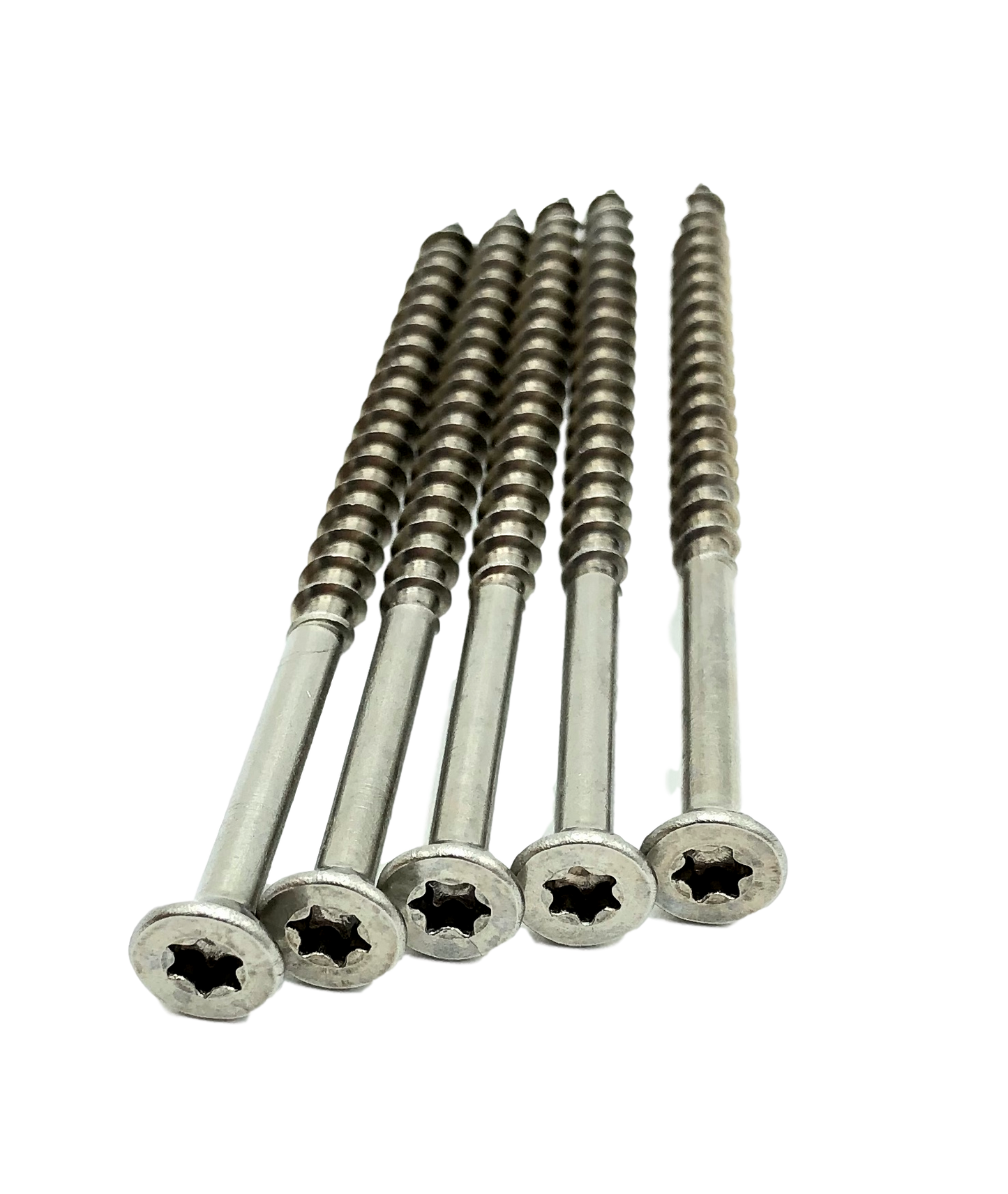
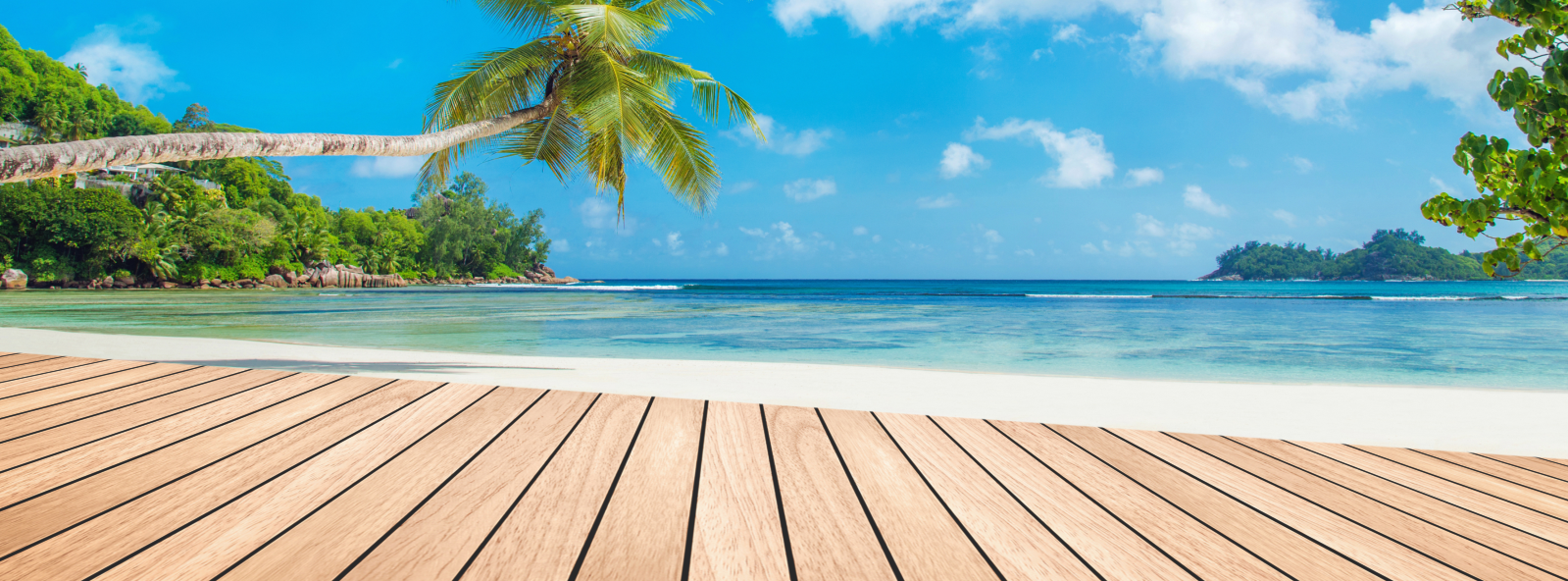
304 GRADE STAINLESS STEEL
are the best all-round screws that you can buy in this day and age. They can be used both indoors and outdoors and have excellent anti corrosion properties that will prevent them from rusting away over time and leaving ugly stains on your deck or fence.
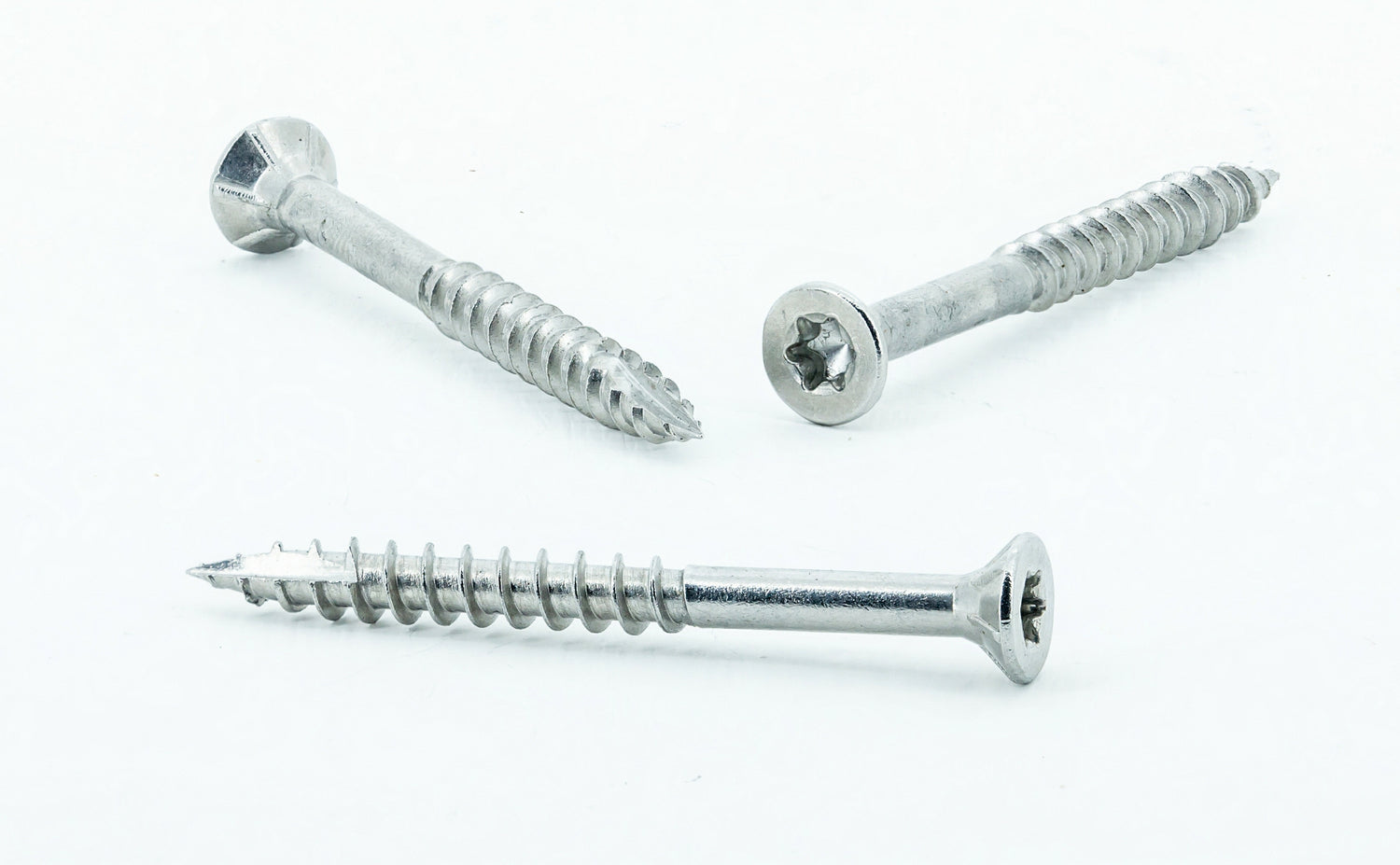
Why 304 grade stainless steel?
304 stainless steel screws has excellent corrosion resistance, which ensures that the screws will stay strong years to come in humid environments. These screws have a neutral finish that stays consistent and blends ion with any choice of timber. Both the durability and look of these screws is what, makes them the first choice for all applications ranging from construction to decorative projects.
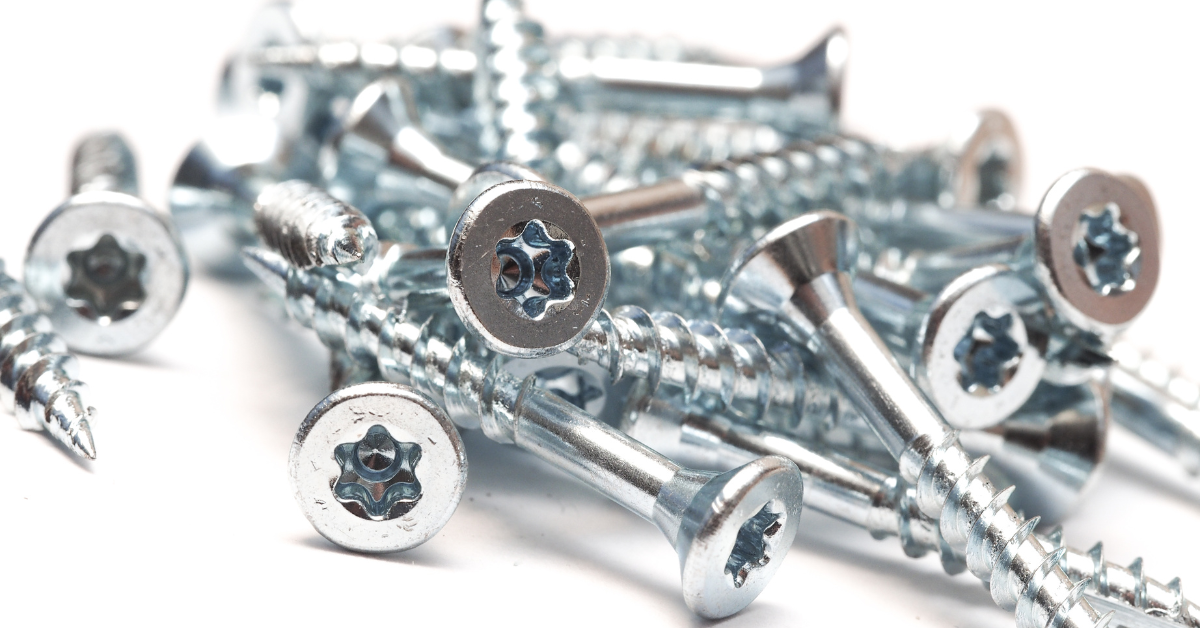
Torx (Star) drive is the best!
The Torx drive's six-point star design drives easily, minimizes cam-out, and ensures better torque transfer than other head types which making it a preferred choice in projects suck as decking, fencing or DIY work where the screw heads are going to be showing.
FAQ
What is the difference between 304 and 316 grade stainless steel wood screws?
Both 304 and 316 stainless steel are highly resistant to corrosion and rust, but 316 marine grade stainless steel is a better choice for costal environments due to its composition.
Are these screws suitable for saltwater environments?
Yes, both 304 and 316 Marine Grade stainless steel deck screws are suitable for use in saltwater environments. However, 316 is classed as 'marine grade' and is recommended as it has maximum corrosion resistance in coastal or marine applications.
What is the lifespan of stainless steel deck screws?
Stainless steel is known for its ability to last. Under normal conditions, these screws can last for many years without significant corrosion or degradation. In fact, stainless steel screws often outlast the timber used in the deck or fence.
Which grade is better for outdoor applications, 304 or 316?
Both grades can be used outdoors and 304 grade is often preferred as it is the more cost effective option and does the job perfectly well, but 316 grade is preferred for areas with high corrosion potential, such as coastal environments.
Subscribe to our emails
Be the first to know about new collections and exclusive offers.
- Choosing a selection results in a full page refresh.
- Opens in a new window.

